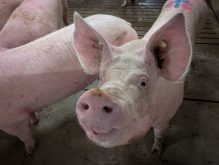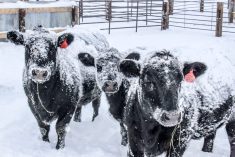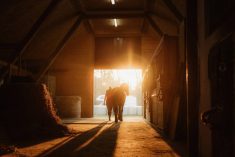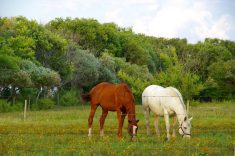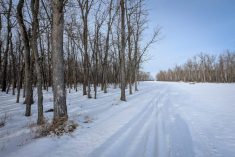Just get out. That’s the bleak message from a Texas A+M University forage specialist to cattle producers who have gone through the driest 12 months in the state’s history.
With little to no grazing and hay, should livestock producers continue to try to buy feed, move cattle to another state or just sell out?
“It would be much less expensive to just get out and come back later,” Texas AgriLife Extension Service state forage specialist Larry Redmon said in a release. “And that’s the message that we’re trying to convey.”
Read Also
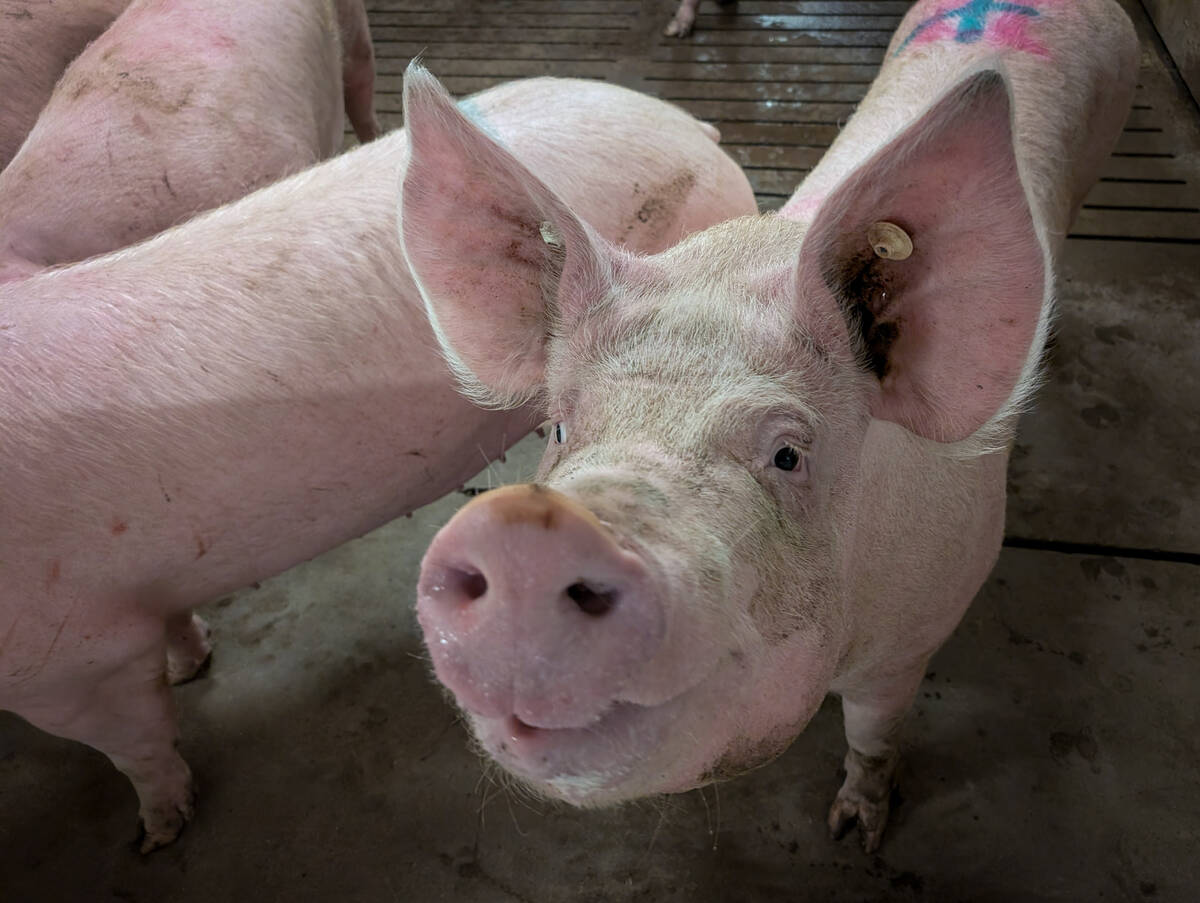
Gene edited, PRRS resistant pig approved in Canada
Canada has given its stamp of approval to pigs gene edited to resist porcine reproductive and respiratory syndrome (PRRS).
Many livestock producers have already tried to cut feeding costs by extensively culling their herds, but have held onto enough cows to rebuild their herds if the drought passes. In some dry years, that might be a good strategy, but not this one, Redmon said.
With grazing and hay supplies next to non-existent in many areas of the state, it’s getting very expensive to buy feed.
On average, it’s costing producers “somewhere around $100 a month to have these animals (cows) stay in the pasture and feed them,” he said (all figures US$).
Another choice is to move cattle elsewhere, most likely another state during this drought, and lease land where there is grazing, Redmon said. That could cost $20-$22 per cow-calf pair plus hauling costs, which would be cheaper than buying local feed.
But completely selling out makes more sense yet, Redmon said, given there’s no guarantee this drought will end anytime soon.
“Some people would counter and say it’ll cost more to come back into the business later because conditions will have improved, and more people will be getting back in,” he said.
“That’s true. But again, looking at the difference in what it would cost to buy cows and come back in at some later date — versus what they would spend trying to go through this drought — mathematically, it’s just a no-brainer.”
— The “Editors’ Picks” feature highlights eyebrow-raising and unusual-yet-true news from the world of farming, as gleaned from various sources by the editorial staff of the Farm Business Communications division.



